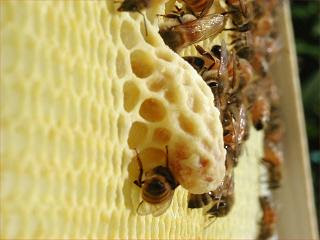
http://www.independent.co.uk/news/world/australasia/murdering-beekeeper-gets-caught-out-by-honey-trap-1654289.html
CONFUSING ENTHUSIASM WITH RESULTS
When you earnestly believe you can compensate for a lack of skill by doubling your efforts, there's no end to what you can't do.





The prospect that a global pollination crisis currently threatens agricultural productivity has drawn intense recent interest among scientists, politicians, and the general public [1], [2], [3], [4] and [5]. To date, evidence for a global crisis has been drawn from regional or local declines in pollinators themselves [6], [7], [8] and [9] or insufficient pollination for particular crops [9] and [10]. In contrast, our analysis of Food and Agriculture Organization (FAO) [11] data reveals that the global population of managed honey-bee hives has increased 45% during the last half century and suggests that economic globalization, rather than biological factors, drives both the dynamics of the global managed honey-bee population and increasing demands for agricultural pollination services [12]. Nevertheless, available data also reveal a much more rapid (>300%) increase in the fraction of agriculture that depends on animal pollination during the last half century, which may be stressing global pollination capacity. Although the primary cause of the accelerating increase of the pollinator dependence of commercial agriculture seems to be economic and political and not biological, the rapid expansion of cultivation of many pollinator-dependent crops has the potential to trigger future pollination problems for both these crops and native species in neighboring areas. Such environmental costs merit consideration during the development of agriculture and conservation policies.

 Reasonably current summary of the plight of bees in New Zealand, written by Sue Kedgley, the NZ Green Party spokeswoman on food safety and the environment.
Reasonably current summary of the plight of bees in New Zealand, written by Sue Kedgley, the NZ Green Party spokeswoman on food safety and the environment.